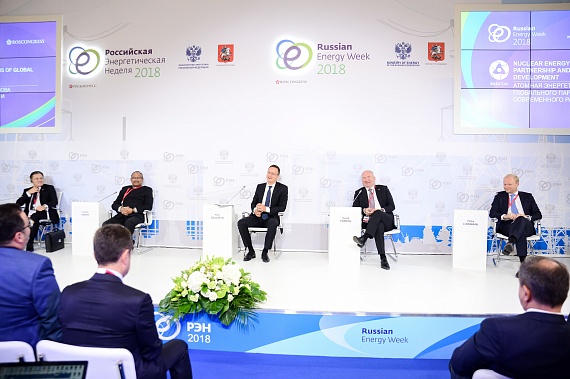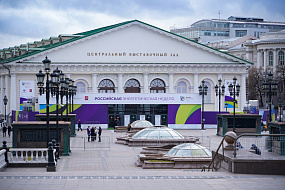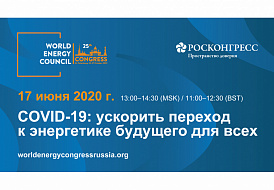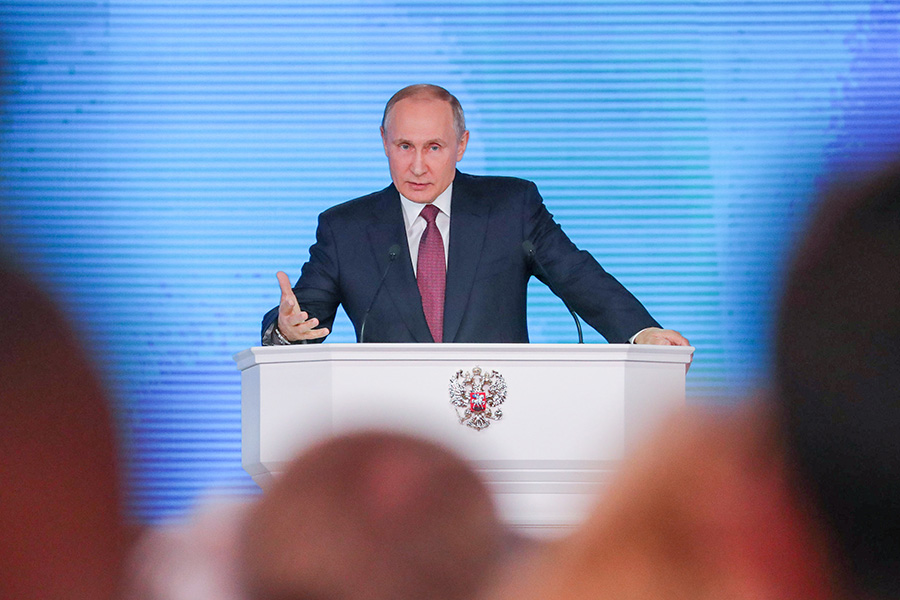Nuclear Energy – the Basis of Global Partnership and Current Development

KEY CONCLUSIONS
Nuclear energy is environmentally friendly and cost-effective type of electric power generation
“Nuclear energy is the safest type of energy <...> if everything is done properly, nuclear energy is the cleanest,” Agneta Rising, Director General, World Nuclear Association.
“Nuclear energy provides environmental safety. If we look at the entire life cycle of an atomic energy source, its numbers are optimal in terms of greenhouse effect and CO2 emissions per kilowatt of energy produced. We believe that not only the source itself is environmentally friendly, but those industries that are involved in its production and maintenance of its life cycle are also designed in accordance with the highest environmental standards and they operate that way,” Alexey Likhachev, Chief Executive Officer, ROSATOM State Atomic Energy Corporation.
“I am concerned about climate change, the rapid changes that outpace the most pessimistic scientific forecasts, everyone feels them. <...> Building nuclear power plants is an important part of solving these problems,” Pekka Lundmark, President, Chief Executive Officer, Fortum Corporation.
“We need to move on to building nuclear power plants, because energy will be cheaper,” Yeafesh Osman, Minister of Science and Technology of the People’s Republic of Bangladesh.
Russia is one of the leading players in the nuclear power market
“Rosatom is contributing to the development of global nuclear energy. We currently have contracts for 25 power units in the stage of active development, and contracts signed for 11 units more. The country’s nuclear technology gives a powerful momentum for socio-economic development,” Alexey Likhachev, Chief Executive Officer, ROSATOM State Atomic Energy Corporation.
For some countries, nuclear power may become the basis of energy independence.
“The country’s sovereignty and energy security are synonyms, because a country can’t remain sovereign while not being engaged in generation of energy. Because sovereignty is at risk if energy comes from abroad,” Nenad Popovic, Minister without Portfolio Responsible for Innovation and Technological Development of the Republic of Serbia.
PROBLEMS
Global political dispute on the future of nuclear power
“It took us a lot of effort to extend the nuclear facilities operation. <...> We see the kind of debate that is going on in the West, how much hypocrisy and double standards are involved. And when we support our neighbors, which is also a part of our policy, we struggle with hypocrisy and double standards, we put ourselves as an example,” Peter Szijjarto, Minister of Foreign Affairs and Trade of Hungary.
“The main obstacle is not the technology issues, but rather political issues. Governments do not always work in the interest of nuclear energy; it has to do with providing investment and finding solutions for other issues,” Mikhail Chudakov, Deputy Director General, Head of the Department of Nuclear Energy, International Atomic Energy Agency (IAEA).
SOLUTIONS
Developing international cooperation
“The Serbian government recently signed an agreement with the management of ROSATOM Corporation. I believe we have laid a very good foundation for the future,” Nenad Popovic, Minister without Portfolio Responsible for Innovation and Technological Development of the Republic of Serbia.
“The global nuclear industry remains one of the few that removes barriers to the transit of goods, services, intellectual property, capital and labor,” Alexey Likhachev, Chief Executive Officer, ROSATOM State Atomic Energy Corporation.
Changing the perception of nuclear energy in the eyes of consumers and market participants
“Everyone is talking about renewable energy sources. They have a future, but they can only be discussed with a reliable protection that only nuclear power can provide,” Mikhail Chudakov, Deputy Director General, Head of the Department of Nuclear Energy, International Atomic Energy Agency (IAEA).
Using new technology in the process of energy production
“Within the government, we see digitalization and innovation as the basis for development of Serbia over the next 20 years. For us, digitalization is a bridge, a tool that will solve problems that we used to have in the past,” Nenad Popovic, Minister without Portfolio Responsible for Innovation and Technological Development of the Republic of Serbia.





